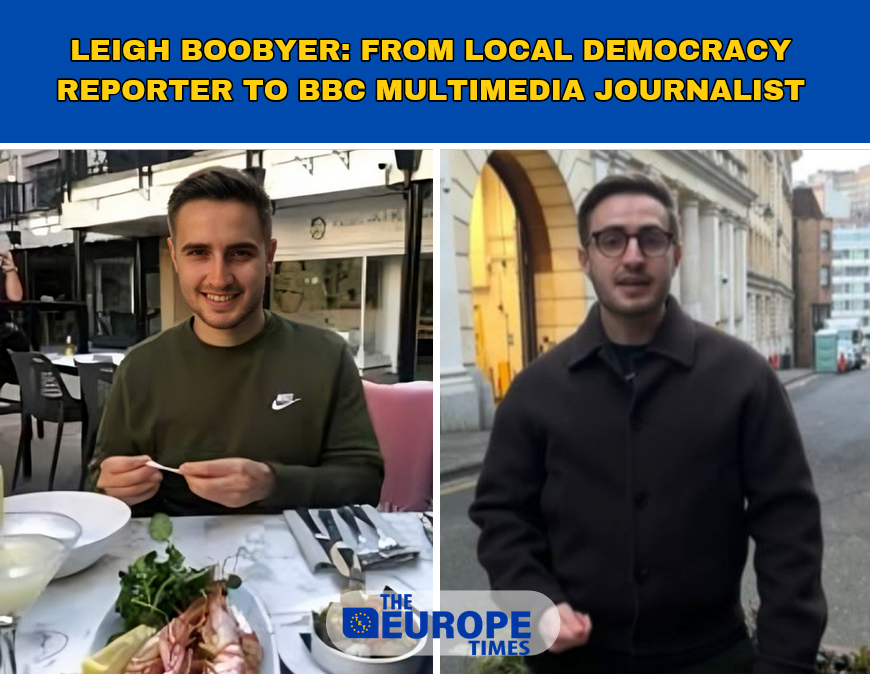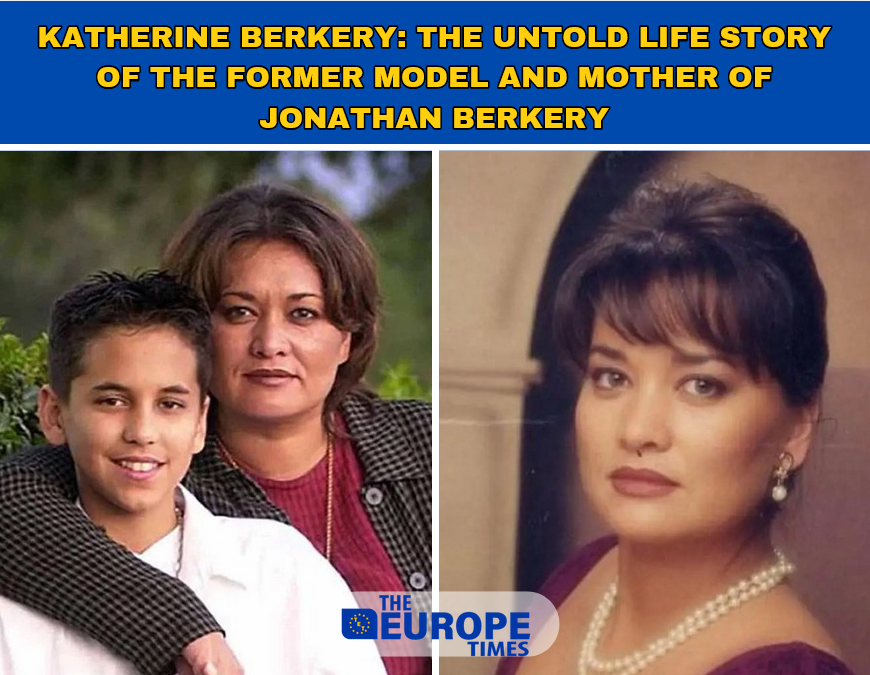Leigh Boobyer is a British journalist whose work has combined tenacity, public-interest investigation, and a move into multimedia reporting for a national broadcaster. He made his name working as a Local Democracy Reporter for Reach plc’s regional titles, producing watchdog journalism that exposed local scandals and put pressure on institutions. His reporting won major industry recognition — including Local Democracy Reporter of the Year — and single-handedly forced public bodies to answer awkward questions. After a spell using his skills in communications for a public health campaign, he joined the BBC as a multimedia journalist based in Bristol, covering the West Country. Across his reporting career he has demonstrated an insistence on transparency, a knack for digging through Freedom of Information material, and the ability to translate complex local issues into stories with regional and national resonance. Source: https://muckrack.com/leigh-boobyer?utm_source=chatgpt.com
| Field | Details |
|---|---|
| Full Name | Leigh Boobyer |
| Profession | Journalist, Multimedia Reporter |
| Nationality | British |
| Current Role | Multimedia Journalist, BBC News (Bristol, UK) |
| Notable Employers | Reach plc (Gloucestershire Live), BBC News, Bite Back 2030 |
| Specialization | Investigative Journalism, Local Democracy Reporting, FOI Requests |
| Awards & Recognition | Local Democracy Reporter of the Year (2019), Special News Award (2020), Multiple commendations |
| Notable Investigations | Police tyre scandal, NHS accounting glitch, COVID-19 Cheltenham Festival link |
| Former Non-Journalism Role | Communications Manager, Bite Back 2030 |
| Based In | Bristol, United Kingdom |
Early background and how he approached journalism
Boobyer’s early interest in journalism followed a classic local-news pathway: curiosity about civic life combined with an appetite for digging into council and police processes. Many local democracy reporters come to the role seeking to hold public bodies to account and to explain how decisions affect everyday life; Boobyer quickly embodied that mission through his reporting on a wide range of civic issues. That early approach—combining dogged FOI requests, careful sourcing and clear, public-facing storytelling—set the tone for the investigations that would later earn awards. Although specific personal biographical details (schooling, city of birth) are not widely published, his professional practice is clear: he built credibility by producing deeply sourced stories that forced transparency and produced concrete outcomes, a hallmark of impactful local journalism.
Entering Reach plc and the Local Democracy Reporting scheme
Boobyer’s career accelerated when he worked under the BBC-funded Local Democracy Reporting scheme (LDRS) for Reach plc, writing for Gloucestershire titles. The LDRS was established to improve coverage of local councils, police, health trusts and other public bodies, and reporters in the scheme often publish for regional Reach sites while their copy is shareable with the BBC. Within that environment, Boobyer honed the specialist skills of an LDR: consistent coverage of council meetings, FOI analysis, and investigations into governance and public services. His bylines from this era show a reporter comfortable explaining complicated public-sector processes in plain language for readers who depend on local news for accountability and civic participation.
Recommended Read: Jason Kolsevich: The Private Life and Career of CNN’s Paula Reid’s Husband
Investigative breakthrough: exposing police staff selling part-worn tyres
One of Boobyer’s most impactful investigations revealed police staff allegedly selling part-worn police vehicle tyres online — a probe that exposed misconduct and triggered disciplinary action. That six-month investigation demonstrated his willingness to pursue uncomfortable stories about institutions many readers assume are beyond scrutiny. The investigation combined careful evidence gathering with persistence in the face of institutional reluctance to disclose information, producing coverage that led to public explanation and internal action. Stories like this are valuable for readers because they translate abstract concerns about corruption or misuse of resources into concrete, relatable examples that demand accountability.
Holding authorities to account: community impact of watchdog reporting
Boobyer’s work consistently translated investigations into tangible community consequences: internal discipline, policy clarifications, and public awareness of systemic issues. Local investigative pieces have a double purpose — they correct or illuminate what has already happened and they create deterrence by signaling that misdeeds will be uncovered. By exposing wrongdoing in public services or highlighting governance lapses, he helped ensure that readers could see the link between local spending/decisions and their daily lives. This kind of impact reporting strengthens democratic oversight and rebuilds trust in journalism’s role as a public watchdog, especially in areas where routine civic scrutiny can otherwise be weak.
Don’t Miss: Kat Timpf Net Worth: A Comprehensive Look at the Popular Fox News Star’s Earnings and Career
Award recognition: Local Democracy Reporter of the Year (2019)
Industry recognition followed Boobyer’s persistent local investigations: he was named Local Democracy Reporter of the Year at the LDR awards — a significant accolade for reporters in the BBC-funded LDRS. Judges highlighted his capacity to “embarrass the authorities” by exposing scandals and forcing answers from institutions that might otherwise avoid scrutiny. The award is notable because it recognizes both the quality of the writing and the public-interest outcomes — for a local reporter, that kind of recognition signals national-level respect for accountability journalism. This award helped raise his profile inside the industry and demonstrated the tangible value of LDR-style reporting.
FOI work and the craft of records-driven reporting
A defining part of Boobyer’s toolkit has been the skilful use of Freedom of Information requests and records analysis. Whether uncovering hidden figures, policy memos, or data that contradicts official lines, FOI often provided the hard evidence his stories needed. That methodical records approach allowed him to build airtight narratives — making it harder for officials to dismiss stories as hearsay — and to surface numerically backed claims that compel public and media attention. For readers, FOI-based journalism is reassuring because it rests on documentary proof rather than rumor; for institutions, it means scrutiny often arrives via verifiable sources.
COVID-19 coverage and the leaked map story (Special News Award 2020)
During the pandemic, one of Boobyer’s stories — reporting on a leaked map showing postcode-level hospital admission concentrations around the Cheltenham Festival area — won a Special News Award in 2020, underlining his ability to break consequential COVID-era local stories. Coverage that tied major local events to public-health effects was especially sensitive and important in 2020; his reporting helped illuminate a connection that mattered to readers seeking to understand local pandemic dynamics. That award recognized both editorial courage and careful verification at a time when public health reporting required balance, precision and a strong sense of public responsibility. Reach CorporateHold The Front Page
Explore More: Amanda Kate Lambert: A Life of Music, Art, and the Weight of a Legendary Legacy
Highly commended pieces and broadcast exclusives
Beyond headline awards, Boobyer’s work received multiple commendations for stories ranging from broadcast exclusives to inventive use of FOI material. Judges and peers repeatedly praised his nose for stories that other reporters overlooked, and his capacity to produce pieces that translated into broadcast segments for regional TV and radio. These recognitions illustrate an important journalistic skill: the ability to adapt a story for different formats — from long online features to concise broadcast items — while preserving the factual core and emotional weight. That versatility is essential for journalists working across both digital and broadcast platforms.
Investigation into NHS accounting glitch and financial transparency
Another notable story exposed an NHS computer glitch that effectively doubled a trust’s reported debt, demonstrating Boobyer’s attention to public-sector finance and data integrity. Stories like this have direct consequences: they influence public debate about resource allocation, procurement practices and fiscal responsibility in health services. By bringing technical, finance-focused issues to a lay audience, he helped readers understand the stakes of administrative errors and the importance of accurate public accounting. This kind of reporting reinforces how local journalism can reveal the operational failures that quietly undermine public services.
Recommended Read: Hugh Lambert’s Journey: From Broadway to Hollywood and Family Legacy
Reportorial ethos: tenacity, verification, and fairness
Boobyer’s reporting style combines tenacity with an insistence on verification and fairness — the ethical backbone of public-interest journalism. Whether confronting evasive public bodies or handling sensitive health data during the pandemic, his approach shows a balance between aggressive pursuit of truth and careful verification to avoid harm. That ethos matters because good local reporting relies on credibility: sources must trust the reporter sufficiently to provide information, and readers must trust that coverage is accurate and responsibly framed. His career demonstrates how rigorous process underpins impactful stories.
Emotional turning points: pride, responsibility and the weight of local stories
Working in local democracy reporting frequently brings emotional moments — pride in exposing wrongdoing, frustration at institutional opacity, and responsibility when stories affect people’s lives — and Boobyer’s work reflects those tensions. The emotional weight of telling stories about health, policing or council decisions means a reporter must stay humane and aware of consequences for individuals involved. His award acceptance and the public responses to investigations likely reinforced both pride in the craft and a heightened sense of responsibility to report with care. These turning points are essential for a journalist’s moral development and sustained commitment to public service journalism.
Transition to communications: Bite Back 2030 and public health advocacy
In early 2021, Boobyer left his LDR role to join Bite Back 2030 — Jamie Oliver’s campaign focused on reducing childhood obesity — as a communications professional, showing a shift from watchdog reporting into mission-focused communications. This move illustrates a not-uncommon career arc for journalists: translating storytelling, strategic messaging and stakeholder engagement skills into advocacy and public-health communications. While such transitions sometimes raise questions about independence, they also demonstrate a journalist’s ability to apply reporting skills to public education and policy change efforts, and in Boobyer’s case it provided an opportunity to work on issues with national public-health significance. Hold The Front PageEurekAlert!
Returning to journalism: multimedia role at the BBC
After the communications role, Boobyer later rejoined journalism as a multimedia journalist for BBC News, based in Bristol and covering the West Country — a move back to reporting with the resources of a national broadcaster. Working as a multimedia journalist at the BBC typically involves producing content for online, TV, radio and social platforms, and the role requires rapid adaptability and editorial judgement across formats. For Boobyer, this move represented both a homecoming to journalism and a step into a role where his prior investigative instincts and broadcast-ready storytelling could reach wider audiences across the region and nationally. Muck RackNews Dipper
The West Country beat: scope and audience
As a BBC multimedia journalist based in Bristol, Boobyer covers a geographically diverse patch — from coastal communities to larger urban centres — where local governance, health services and regional culture intersect. The West Country beat requires sensitivity to rural and urban differences, strong regional knowledge, and the ability to surface stories that matter locally but also speak to broader trends. Reporters on this beat often juggle breaking news, planned investigations and community-led stories, providing context for decisions made at council meetings, in hospitals, and by local businesses. Boobyer’s prior LDR experience gave him a foundation for translating such issues into compelling multimedia stories.
Recent notable coverage and typical story mix
At the BBC, his output includes a mix of breaking news, features, public-service explainers and local human-interest stories — the type of mix that builds audience trust and keeps the public informed about both immediate events and systemic issues. Regional multimedia journalists often prioritise clarity and accessibility, turning council minutes or technical reports into stories that audiences can act on or respond to. Examples of themes across his reporting include regional public safety incidents, cultural events with large community participation, and stories that scrutinise public services — consistent with his watchdog instincts and broadened by the multimedia demands of modern public broadcasting.
Crafting stories for multiple platforms
A key part of contemporary journalism is platform fluency: converting a single investigation into a long-form web piece, a concise radio package and short social clips — and Boobyer’s role at the BBC required exactly that. This skillset includes scripting for voice, structuring on-camera sequences, and designing online explainers that help readers and viewers quickly grasp complex information. Such cross-platform craftsmanship increases the reach of local investigations and ensures that public-interest stories land with different audience segments, from commuters on radio to younger users on social platforms.
Lessons learned: responsibility, resilience and community trust
Boobyer’s career demonstrates three consistent lessons: reporters must (1) treat public information responsibly, (2) be resilient in pursuing difficult stories, and (3) build trust with the communities they cover. These lessons are particularly salient for local democracy reporting where resources can be scarce and the stakes—public money, health outcomes, policing—are high. Resilience matters because investigations often face legal and bureaucratic blocks; responsibility ensures coverage does not harm vulnerable people; and trust is the currency that allows sources to speak and communities to engage with journalism.
Future outlook: the role of regional multimedia journalists
The future for regional multimedia journalists like Boobyer looks to be one of continued cross-platform storytelling, targeted investigations, and a stronger emphasis on audience engagement and verification. As newsrooms evolve, reporters who can combine FOI skills, multimedia production and community connection will remain essential. Boobyer’s career suggests he is well placed to continue producing high-impact stories that influence local policy and inform public debate — particularly if he continues to blend investigative rigor with the narrative sensibilities needed for broadcast and digital platforms.
Legacy and influence in local news ecosystems
Even at a relatively early stage in his career, Boobyer’s investigations and awards have left a mark on local news ecosystems by demonstrating the value of thorough, records-driven reporting. When local journalists win recognition and force institutional responses, it validates investment in local reporting and encourages similar work across other regions. His work is an example for emerging reporters: practical FOI work, persistence on complex beats, and an ability to turn technical material into public stories are the building blocks of journalism that strengthens civic life.
Conclusion: ongoing dedication to public-interest storytelling
Leigh Boobyer’s professional path — from LDR investigations that exposed institutional problems, to a spell in public-health communications, and then to multimedia reporting at the BBC — reveals a journalist driven by a desire to inform and to hold power to account. His awards and investigations show measurable impact, while his multimedia role broadens the reach of his stories. As local and regional news continues to change, reporters who combine tenacity, verification and storytelling — the very qualities Boobyer exemplifies — will remain central to democratic oversight and community information.
FAQs about Leigh Boobyer
Q1: Who is Leigh Boobyer?
Leigh Boobyer is a British journalist known for his investigative reporting as a Local Democracy Reporter for Reach plc, where he exposed major local government and public service issues. He currently works as a multimedia journalist for BBC News in Bristol, covering the West Country.
Q2: What awards has Leigh Boobyer won?
He has won Local Democracy Reporter of the Year (2019) and a Special News Award (2020) for his COVID-19 coverage, among other commendations for investigative journalism and FOI-based reporting.
Q3: What was Leigh Boobyer’s most famous investigation?
One of his most notable investigations revealed police staff selling part-worn tyres from police vehicles, which led to disciplinary action and widespread public attention.
Q4: Did Leigh Boobyer work outside journalism?
Yes. In 2021, he became Communications Manager for Bite Back 2030, a public health campaign led by Jamie Oliver, before returning to journalism at the BBC.
Q5: Where is Leigh Boobyer based now?
He is based in Bristol, UK, where he reports on news and issues affecting communities across the West Country for BBC News.
For More Update and Helpful Content Visit: The Europe Times











